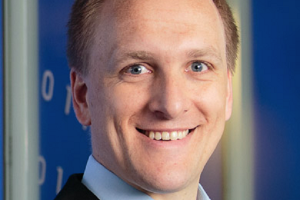In a precedent-setting decision, the United Kingdom’s High Court of Justice has ruled in favour of SAP in its dispute against £11B global beverage firm Diageo, upholding SAP’s right to charge licence and maintenance fees for access to mySAP ERP via third-party software.
In the high-stakes win, SAP is seeking almost £55M in additional licence and maintenance fees plus an injunction requiring Diageo to permit SAP reasonable access to the mySAP ERP software to enable usage verification and for an account of any additional licence and maintenance fees payable. Damages will be assessed during the next phase of the trial.
The High Court has ruled that sales representatives, distributors and customers using Diageo’s Salesforce platform to interact with mySAP ERP constitutes unauthorised use under the SAP agreement.
The licence fee is calculated based on the number of various types of “named users” identified in the agreement, which was originally entered into in 2004. The annual maintenance fee is calculated as a percentage of the licence fee. As part of the agreement SAP also granted to Diageo a licence to use software engines, including the SAP Exchange Infrastructure (XI), now known as SAP Process Integration (PI), which distributes messages between systems, with fees based on the monthly volume of messages.
SAP insisted Diageo’s Connect and Gen2 software was accessing directly or indirectly mySAP ERP via Salesforce, thereby increasing the number of named users and the associated licence and maintenance fees payable. Diageo insisted that its software accessed mySAP ERP indirectly via SAP PI, therefore increasing only the fees based on volume of messages, not those for licence and maintenance fees.
Connect enables customers to manage their Diageo accounts, including placing and reviewing orders directly instead of through a call centre. Gen2 enables Diageo’s sales and service representatives to manage their customer calls and visits and to record information obtained during such visits and calls.
Diageo insisted its position was supported by two factors: an explicit statement in the agreement that while a charge is made for data passing from SAP applications to third party applications via the SAP PI interface, no such charge is made for data passing from one SAP application to another; and the absence of any statement that users of third party software which interacts with SAP applications via SAP PI require individual licensing as users of the SAP applications.
In the judgment against Diageo, Justice O’Farrell pointed out that the High Court was seeking the intent behind the agreement. She specifically rejected Diageo’s claim that SAP PI is a “gatekeeper” licence for gaining access to the SAP suite of applications and database.
“The Exhibit contains a separate basis of pricing for the SAP PI software engine and adapters, which applies even where there is a Named User licence for mySAP ERP: ‘Usage of one or more of these software engines is not included as part of the standard mySAP Business Suite Named User licence and is subject to an additional charge in each case.’ Therefore, it is clear that it is an addition, rather than an alternative, to authorisation under a Named User licence.”
The High Court found that only named users are authorised to use or access the mySAP ERP software directly or indirectly and that named user pricing is the only basis on which the mySAP ERP software was and is licensed to Diageo. Access by both Connect and Gen2 users was found to constitute unauthorised access under the agreement.
The judge was unable to determine exactly which named user category was warranted in Diageo’s situation and did not agree that SAP should have access to Diageo’s Salesforce system to verify usage as SAP failed to establish breach of clause 3.19 of the agreement.




